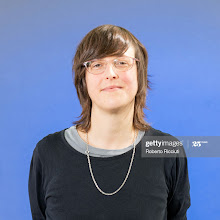“It’s useless to wait – for a breakthrough, for the revolution, the nuclear apocalypse or a social movement. To go on waiting is madness. The catastrophe is not coming, it is here. We are already situated within the collapse of civilisation.” (The Invisible Committee 2009, p.96)
The significance of this point in history cannot be underestimated. The hiatus caused by this latest epic crisis of capital should have given all of us opportunity for self-reflection. The connections between capitalism and environmental catastrophe have once again been starkly illuminated and so too has our own complicity in, and responsibility for, both. As the many climate scientists and campaigners have been telling us, we now only have one decade left – until 2020 – to stabilise and begin to reduce our rapidly increasing greenhouse gas emissions or we will be unable to avoid hitting the “dreaded two degrees” (Armstrong 2009b) – the tipping point at which we trigger runaway climate change and a rapid irreversible and uncontrollable descent into a new world of which the visions of The Road are not too much of an exaggeration.
Even mainstream politicians hungry for votes are forced to admit that “the age of irresponsibility is giving way to the age of austerity” (Cameron 2009). It does seem “useless to wait” (The Invisible Committee 2009, p.96). Now provides the opportunity to radically rethink the way we live, not just in practical terms, but in the way our minds perceive of ourselves in the future; of what we are working ‘towards’. We need to reverse our very ontological foundations so that we become capable of comprehending the opposite of progress – of approaching life in a world where deflation becomes the norm and where rationing is “inevitable” (Fisher 2009, p.80).
As artists – the producers of the non-essential – this rethink seems all the more vital and all the more urgent. It is now our ‘responsibility’ to redefine our roles within this new world, within the “collapse of civilisation” (The Invisible Committee 2009, p.96). As we approach the inevitable challenges of the forthcoming century we can no longer be immune to ethics – we must begin to question what practical function our work can have. And, if we decide that we can still persist in our roles as artists, then we must begin to generate new ways of finding “intrinsic motivation” when our traditional motivational structures of striving towards ‘goals’ such as “recognition and fame” (Abbing 2002, p.82); of creating a ‘legacy’ for ourselves in the future, no longer seem viable.
It is typical in periods of crisis (and opportunity) such as this to look to the past for guidance. Retrospective critique (as used to ‘set the scene’ for this essay) helps us to understand the causes of our current predicament in terms of a greater historical trajectory, to help us make sense of our own lives biographically. The real challenge, however, is in developing the suggestions, ideas and solutions that are essential to help us move on. The proceeding sections of this essay turn to two manifestos from 2009 which attempt just this: Ecoaesthetics: A Manifesto for the Twenty-First Century by Rasheed Araeen and Uncivilisation: The Dark Mountain Manifesto. The intention is to draw together their recurring ideas in order to formulate a ‘plan of action’ which may constitute our ‘new moral code’, and then to examine how some of these ideas are already being put into practice, not just by some artists, but by other more radical elements of society.
How to Reconcile the Careerist Mentality with Our Impending Doom
By Ellie Harrison
May 2010
Contents
- Preface
- Global Warming Projection
- Setting the Scene
- The Careerist Mentality
- Our Impending Doom
- A Rude Awakening
- Now or Never
- Atomised Art World
- Free Our Minds
- Outside the Bubble
- Plan of Action
- New Moral Code
- Clandestine Insurgence
- Alternative Knowledge
- Practical Solutions
- Multi-Pronged Approach
- A Reconciled Practice
- Our Fully Functional Role
- References
